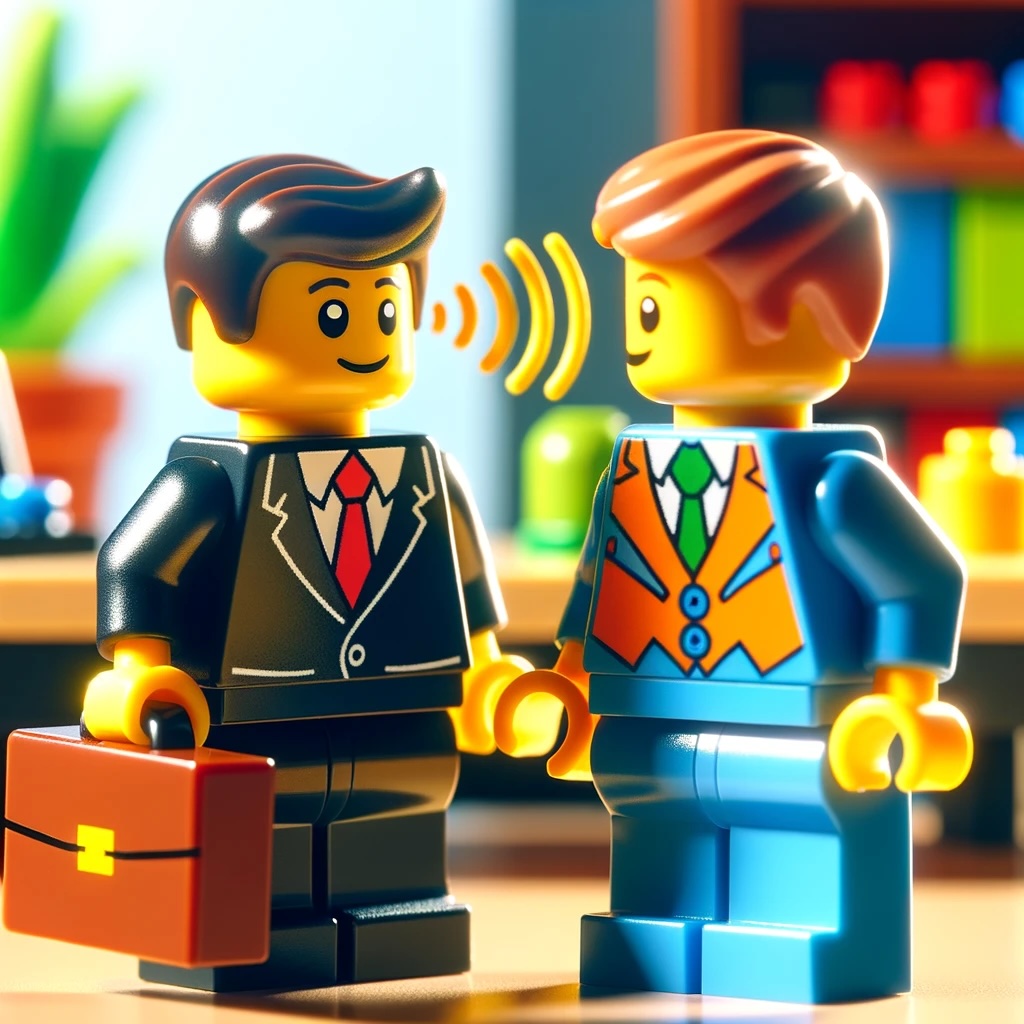

Do you sometimes listen as Google?
You're halfway through typing a search in Google, and bam! It's as if Google is reading your mind and making suggestions even before you finish your sentence. Handy, isn't it? But let's face it, in real life, this type of 'telepathy' can mess up communication quite a bit. In a world where we are used to quick answers and instant results, the art of active listening has become a rare but indispensable skill, especially in the business environment.
Put yourself in conscious listening mode
Active listening is not a passive activity; it requires conscious effort and attention. In the business world, where miscommunication can lead to significant losses, it is essential to be fully present and attuned to the speaker. This means turning off your inner 'Google autocomplete', which tends to hijack the conversation with premature conclusions. Put aside your preconceptions, assumptions and personal agenda. Be present in the moment and focus on what is being said, not on what you think will be said.
Backtracking
A practical way of showing that you are listening is backtracking: repeating or summarising what the other person has just said. This not only shows that you are paying attention, but also helps clear up any misunderstandings. During a meeting, imagine saying, "So if I understand correctly, are you proposing to revise the marketing strategy to put more emphasis on digital channels?" This gives the speaker a chance to confirm or correct, leading to a clearer understanding for both parties.
Paraphrasing
One step beyond backtracking is paraphrasing. This involves rephrasing what the other person has said, but in your own words. Paraphrasing shows not only that you are listening, but also that you are processing and understanding the information. For example, after explaining a new project, you might say, "In other words, the focus is on innovation and efficiency to strengthen our competitive position." Paraphrasing is like giving a personal touch to the 'Google suggestion', it makes the communication more personal and meaningful.
Conclusion
Active listening is an essential skill, especially in an era when technology has changed our expectations of communication. It is not about the fastest answer, but the most thoughtful and understanding. Let's aim for a listening quality that even Google cannot match. And remember, while Google might make suggestions before you finish your sentence, in real life it is often better to wait a while and really listen.
Tip
Want to take your active listening skills to the next level? Discover the Skill Sprints at The House of Coaching, where you will refine your communication skills as a leader and shine.
We will start from this December and January with a series of short and powerful Skill Sprints on the theme of leadership. Over the next few weeks, as many as 15 themes around leadership will be reviewed. Reserve your place.

